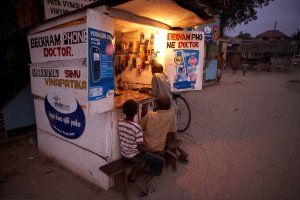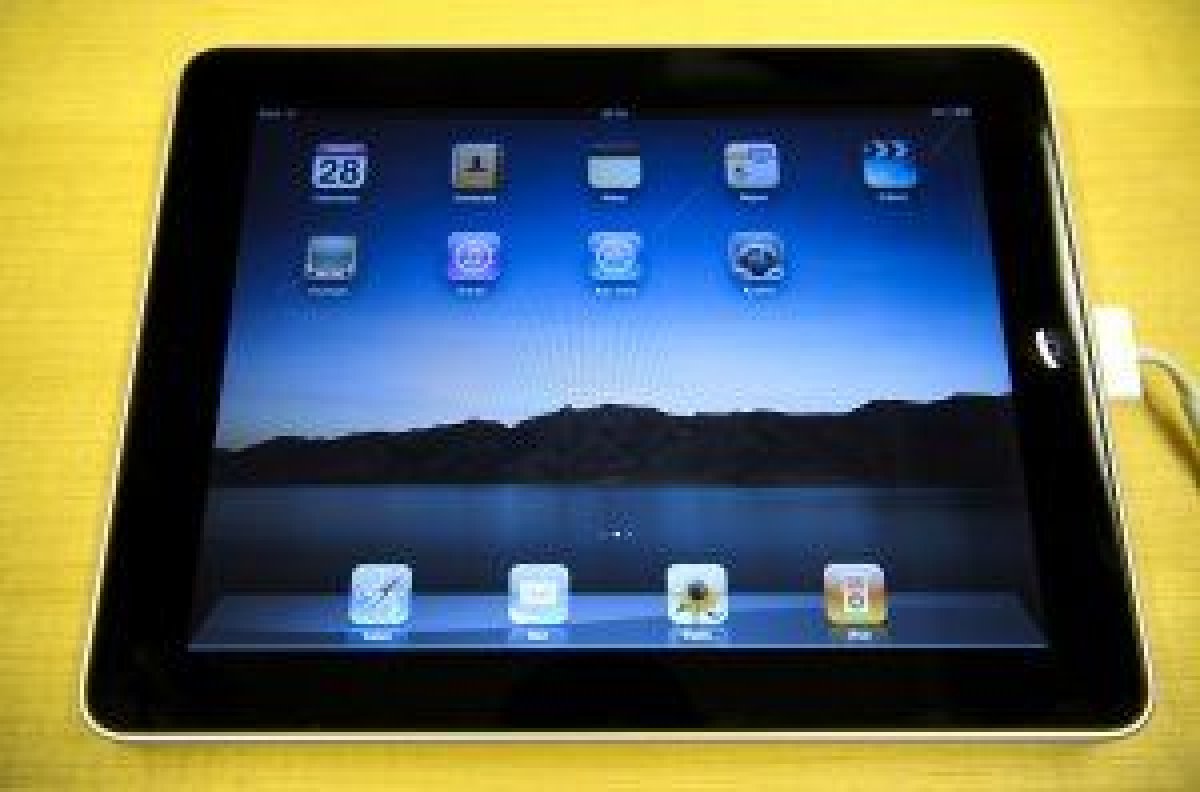
The modern mobile-phone era dates back only to the 1970s. In just 40 years, in the West, they've gone from suitcase-size novelty to ubiquity. And they're no longer just luxury goods. More than 4 billion of the 6 billion people on earth now have a cell phone, with a quarter of those owners getting one in just the last two years. And many are using them, in a giant global experiment, to change the way life is lived, from Manhattan to Ouagadougou.
The phones now allow Masai tribesmen in Kenya to bank the proceeds from selling cattle; Iranian protesters to organize in secret; North Koreans to communicate with the outside world; Afghan villagers to alert Coalition soldiers to Taliban forces; insurgents to blow up roadside bombs in Iraq; and charities to see, in real time, when HIV drugs run out in the middle of Malawi.

"I was actually sitting around with a bunch of Ethiopian farmers recently," says Duncan Green, research director for the charity Oxfam, "when I noticed that none of them had light or running water, but each family had a mobile phone." The reasons are simpler than we think, he says. "Before, these farmers, if they wanted to check on a sick relative elsewhere, had to walk three hours in each direction. Now they just make a call." That convenience, he says, drives their eager embrace of the phones. But the phones' growing ubiquity—"they're a technological Coca-Cola," Green says—has other uses, too. Here are five ways they're changing the world.
Exposing Secrets
On the Chinese border with North Korea, human-rights activists have a mission. They aim to persuade the few North Koreans allowed to travel outside the country to smuggle cell phones back in, and help open the most closed society in the world. (Mobile phones are officially allowed, but are strictly limited in range and closely monitored.) If discovered with their smuggled phones, the spies risk imprisonment and death, all in an effort to report on everything from pets to famine, and the swirl of story and counter-story that manages to penetrate dictator Kim Jong-il's wall of silence. One such person, The New York Times reports, was executed by firing squad when authorities discovered his cell phone.
Advancing Democracy
Cell phones present a problem for oppressive regimes everywhere. So many Iranians were using text messages to secretly organize protests against last year's flawed elections thatthe government eventually shut down service entirely. The Finnish company Nokia Siemens was criticized by the European Parliament for providing the government the equipment to do so. China presumably has its own capability: when prominent democracy campaigner Liu Xiaobo won the Nobel Peace Prize last month, messages containing the Chinese characters for his name failed to send, reported the Associated Press. Unbowed, his supporters continue to make their voices heard in the West. By cell phone, of course. In Africa, Green says, people are able to report violent incidents and government oppression in a way they couldn't before. "It's kind of the first time they've had bottom-up democracy," he says.
Enabling Commerce
In Tanzania, reports the BBC, only 5 percent of people have a bank account. In Kenya, there is one bank branch per 100,000 people. It's a situation that is repeated in many developing countries, including such potential powerhouses as India. The solution, for some, has come through the cell phone. In Uganda, where villages often have one top-up phone run by a trusted operator, a basic system helps store and transfer money. In a TED talk in 2007, Jan Fishman, an analyst for Frog Design, a global innovation firm, outlined a common method of banking using a cell phone where there are no banks. A villager, working hundreds of miles away from home, buys a cell-phone refill card with his earnings. To send his money back to the village, he calls the operator, who tops up the phone using the card. The operator, having taken a commission, then hands cash on to whoever has been authorized. In India, the system has been formalized and is supported by the Bank of India. In Kenya, the main service, M-Pesa, moves millions of dollars per day by text message. In the East African nation, the ability to SMS means that Masai farmers can bank the money from the sale of a cow instead of carrying the cash. One minor difficulty, says Green, is that the same farmer will sometimes spend money he should be using for food on a shiny new phone. "But that's just people," he says.
Distributing Medicine
Stock-outs—which is what it's called when isolated clinics in countries such as Kenya, Uganda, Malawi, and Zambia run out of antimalaria medicine, zinc tablets, penicillin, HIV and AIDS drugs, and diarrhea treatments—are potentially deadly, even as their occurrence often is denied by local governments. A new project, Stop Stock-Outs, aims to use cell phones to solve the problem. Activists send a simple text message to a central number reporting which drugs are out of stock. The information is collated in a virtually real-time map, on which bright red dots signify a dangerous shortage.
Waging War
In Afghanistan, The Wall Street Journal reports, the Taliban have forced local cell-phone-service providers to shut down their towers at night. The move is designed to stop locals reporting Taliban movements to Coalition forces. NATO troops, meanwhile, also black out entire areas of cell coverage before an offensive to prevent insurgents from remotely detonating roadside bombs, says one official who did not want to be named discussing operational details. Suppressing the devices will become harder and harder for both sides—cell phones are one of the few economic bright spots in the country. Hundreds of thousands of Afghans now have one.
Uncommon Knowledge
Newsweek is committed to challenging conventional wisdom and finding connections in the search for common ground.
Newsweek is committed to challenging conventional wisdom and finding connections in the search for common ground.
About the writer
To read how Newsweek uses AI as a newsroom tool, Click here.








